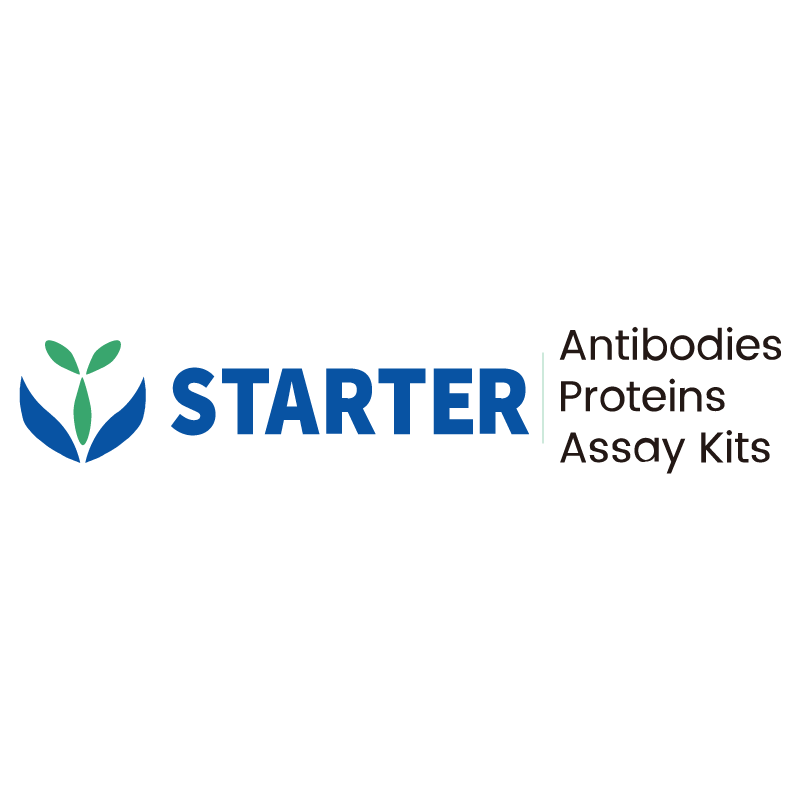WB result of Caspase-9 Recombinant Rabbit mAb
Primary antibody: Caspase-9 Recombinant Rabbit mAb at 1/1000 dilution
Lane 1: THP-1 whole cell lysate 20 µg
Lane 2: HepG2 whole cell lysate 20 µg
Secondary antibody: Goat Anti-rabbit IgG, (H+L), HRP conjugated at 1/10000 dilution
Predicted MW: 46 kDa
Observed MW: 30, 37, 40 kDa
Product Details
Product Details
Product Specification
| Host | Rabbit |
| Antigen | Caspase-9 |
| Synonyms | CASP-9; Apoptotic protease Mch-6; Apoptotic protease-activating factor 3 (APAF-3); ICE-like apoptotic protease 6 (ICE-LAP6) |
| Immunogen | Synthetic Peptide |
| Location | Cytoplasm |
| Accession | P55211 |
| Clone Number | S-1541-20 |
| Antibody Type | Recombinant mAb |
| Isotype | IgG |
| Application | WB |
| Reactivity | Hu, Ms, Rt |
| Positive Sample | THP-1, HepG2, C2C12, NIH/3T3, mouse brain, mouse heart, mouse spleen, rat brain, rat heart, rat spleen |
| Purification | Protein A |
| Concentration | 0.5 mg/ml |
| Conjugation | Unconjugated |
| Physical Appearance | Liquid |
| Storage Buffer | PBS, 40% Glycerol, 0.05% BSA, 0.03% Proclin 300 |
| Stability & Storage | 12 months from date of receipt / reconstitution, -20 °C as supplied |
Dilution
| application | dilution | species |
| WB | 1:1000 | Hu, Ms, Rt |
Background
Caspase-9 is a cysteine-aspartic protease that plays a critical role as an initiator of the intrinsic apoptosis pathway, also known as the mitochondrial pathway. Caspase-9 is activated in response to various apoptotic stimuli, such as DNA damage, growth factor deprivation, and oxidative stress. It is a key initiator caspase that, once activated, can activate downstream effector caspases like Caspase-3, -6, and -7, leading to the execution of apoptosis. Recent research has revealed that Caspase-9 has functions beyond apoptosis, including the regulation of cellular differentiation/maturation, innate immunity, mitochondrial homeostasis, and autophagy. It has been shown that Caspase-9 can drive neurovascular injury through nonapoptotic endothelial cell dysfunction. Caspase-9 has also been implicated in the regulation of autophagy through its non-apoptotic functions. It maintains mitochondrial homeostasis, which is crucial for the maturation of autophagosomes. Genetic variations in the CASP9 gene have been linked to various diseases, including cancers, neurological disorders, autoimmune pathologies, and lumbar disc disease. Alterations in Caspase-9 expression, activity, or function may be associated with acute and chronic neurodegeneration, retinal neuropathy, and other conditions.
Picture
Picture
Western Blot
WB result of Caspase-9 Recombinant Rabbit mAb
Primary antibody: Caspase-9 Recombinant Rabbit mAb at 1/1000 dilution
Lane 1: C2C12 whole cell lysate 20 µg
Lane 2: NIH/3T3 whole cell lysate 20 µg
Lane 3: mouse brain lysate 20 µg
Lane 4: mouse heart lysate 20 µg
Lane 5: mouse spleen lysate 20 µg
Secondary antibody: Goat Anti-rabbit IgG, (H+L), HRP conjugated at 1/10000 dilution
Predicted MW: 46 kDa
Observed MW: 30, 37, 40 kDa
WB result of Caspase-9 Recombinant Rabbit mAb
Primary antibody: Caspase-9 Recombinant Rabbit mAb at 1/1000 dilution
Lane 1: rat brain lysate 20 µg
Lane 2: rat heart lysate 20 µg
Lane 3: rat spleen lysate 20 µg
Secondary antibody: Goat Anti-rabbit IgG, (H+L), HRP conjugated at 1/10000 dilution
Predicted MW: 46 kDa
Observed MW: 30, 37, 40 kDa


